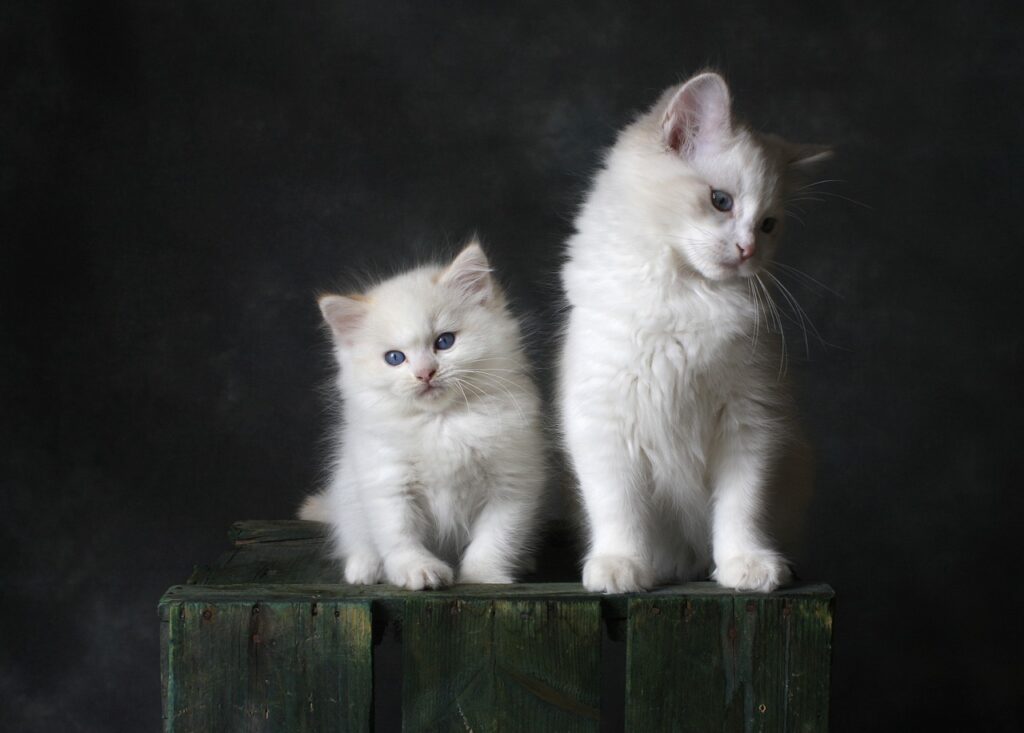Can Cats Eat Beetroot? – No, They can’t
When it comes to whether our feline friends can share in our enjoyment of beetroot, the simple answer is no, they shouldn’t. Beetroot is non-toxic to cats, but it is not an ideal food choice for them. Cats are obligate carnivores, which means their bodies are designed to digest and use only animal-based proteins efficiently. While a tiny nibble of beetroot here and there isn’t likely to harm them, it doesn’t provide any nutritional benefits for cats, and it’s not necessary for their diet.
Can Kittens Eat Beetroot?
Similar to adult cats, kittens should not eat beetroot. Kittens are in a crucial stage of growth and development and require a balanced diet that is high in animal proteins. They need specific nutrients that are only present in high-quality kitten food, and including beetroot in their diet is unnecessary and could potentially disrupt their nutritional balance.
Things to consider when feeding beetroot to kittens?
While it’s best to avoid feeding beetroot to kittens, it’s essential to understand that their digestive systems are extra sensitive. If a kitten were to eat beetroot, it could lead to stomach upset or interfere with the absorption of the vital nutrients they need to grow healthy and strong. Thus, sticking to a diet formulated specifically for kittens is the safest option.
Nutritional Benefits of Beetroot for Cats – Why Beetroot is Not Recommended for Cats
High Carbohydrate Content
Beetroot is high in carbohydrates, which cats don’t need in large amounts. Cats get their energy primarily from proteins and fats, making the carbs in beetroot more of a burden on their system than a benefit.
Indigestible Fibers
The fiber in beetroot is not readily digested by cats. While fiber is essential in the diet of humans, it is less important for cats and can cause gastrointestinal issues like diarrhea or constipation in them.
Oxalates
Beetroot contains oxalates, which can lead to the formation of crystals in the urinary tract of cats. This can be particularly harmful and lead to urinary tract diseases, which are common and serious concerns for felines.
Unnecessary Sugars
The natural sugars found in beetroot are not beneficial for cats and can contribute to weight gain and other health issues if consumed in surplus.
Lack of Amino Acids
Cats need certain amino acids like taurine, which are only found in animal protein. Beetroot doesn’t provide this or other necessary amino acids, making it insufficient as a food choice for cats.
Potential Allergies: Can Cats Be Allergic to Beetroot?
While it’s not common for cats to be allergic to beetroot, it is possible. Any new food can potentially trigger an allergic reaction in cats, which is why it’s best to stick to a diet specifically formulated for them.
Symptoms of Beetroot Allergies in Cats
- Gastrointestinal distress: Look for symptoms like vomiting or diarrhea, which can indicate an adverse reaction to beetroot.
- Skin irritation: Allergies may also manifest as itchy or inflamed skin, so monitor your cat for excessive scratching or licking.
- Respiratory issues: Rarely, food allergies can cause respiratory symptoms such as coughing or wheezing.
What to Do If Your Cat Shows Symptoms?
- Stop feeding beetroot: If you suspect an allergic reaction, remove beetroot from your cat’s diet immediately.
- Consult your veterinarian: If symptoms persist, bring your cat to the vet to determine the cause of the reaction and appropriate treatment.
- Monitor your cat: Keep an eye on your cat after removing beetroot from their diet to ensure that symptoms improve.
Recommended Amount: How Much Beetroot Can a Cat Consume?
Given that beetroot is not recommended for a cat’s diet, there is no prescribed amount that a cat should consume. Your cat’s diet should mainly consist of high-quality commercial cat food that meets all their nutritional requirements.
Things to Consider When Feeding Beetroot to Cats
As beetroot can cause stomach upset and other health issues for cats, it should be avoided. If you’re considering adding any human food to your cat’s diet, it’s always best to consult with a veterinarian first.
How to Feed Beetroot to Cats: A Quick Guide
Although feeding beetroot to cats is not recommended, if you choose to give your cat a taste, it should be done so sparingly and under supervision. Make sure that the beetroot is plain and cooked without any added seasonings, spices, or sugar.
Plain Cooked Beetroot Mash
Boil or steam a small piece of beetroot until it’s soft. Let it cool and then mash it up without adding anything to it. Offer a tiny amount to your cat as a rare treat.
Beetroot Juice Drizzle
Take a small amount of plain beetroot juice and drizzle it over your cat’s regular food for a bit of added flavor. This should only be done occasionally and in moderation.
Beetroot Topped Kibble
Chop a tiny portion of cooked beetroot into fine pieces and sprinkle it over your cat’s kibble. Ensure that any new food introduction is minimal to prevent dietary upset.
Conclusion
To sum up, beetroot doesn’t form an essential part of a cat’s diet and should be considered only as an occasional, minimal treat, if at all. If your cat accidentally consumes beetroot, there’s usually no need to worry; however, regular feedings are not encouraged. Always ensure that the core of your cat’s diet is a high-quality cat food that suits their nutritional needs. When in doubt, consulting with your veterinarian is the safest course of action. Remember, each cat is unique, and what might be safe for one cat in very small quantities could cause an issue in another.



